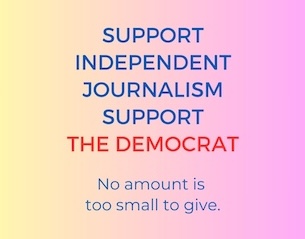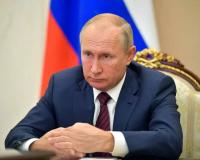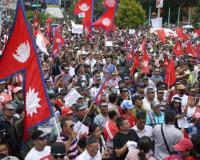- World
- UPDATING LIVE: Rejection of two-State solution by Israeli leadership 'unacceptable', says Guterres
UPDATING LIVE: Rejection of two-State solution by Israeli leadership 'unacceptable', says Guterres

Top diplomats are debating the deepening crisis in the Gaza Strip and the whole Middle East in the UN Security Council against the backdrop of Israel’s unrelenting military operation, mounting death toll and escalating global calls for an immediate ceasefire. The UN Secretary-General told ambassadors and foreign ministers during Tuesday's meeting that any refusal to accept a two-State solution to the Israel-Palestine conflict "must be firmly rejected".
There are dozens of countries remaining who want to speak in this high stakes open debate on the Middle East in the Security Council. All the Council members have already had their say, along with many of the big regional players. Here are the main points so far:
HIGHLIGHTS SO FAR
- Israel’s “clear and repeated rejection” of the two-State solution “is unacceptable”, said UN Secretary-General António Guterres, adding that “this refusal, and the denial of the right to statehood to the Palestinian people, would indefinitely prolong a conflict that has become a major threat to global peace and security.”
- Council members roundly called for the two-State solution to be realized and for an end to the war, with many calling for an immediate ceasefire to end the suffering of Palestinians and allow the aid they urgently need to be delivered unhindered
- Many speakers from the wider UN membership echoed those calls
- “Stop this massacre,” said the Deputy Prime Minister of Jordan
- “We are running out of time. There are two choices: a spreading fire or a ceasefire,” said the Foreign Affairs Minister for the Observer State of Palestine
- Israel’s Ambassador said if the Council continues to provide aid to Gaza without considering the Iranian threat, the world faces “a very dark future”
For summaries of this and other UN meetings, visit our colleagues at UN Meetings Coverage in English and French
7:06 PM
Lack of two-State solution means ‘perpetual conflict’: Pakistan
Pakistan’s Ambassador Munir Akram said the Security Council had failed in its duty to prevent the war. He welcomed diplomatic efforts being made to advance a two-State solution, the only viable option for peace not just between Israel and Palestine, but Israel and the whole Islamic world.
Without this solution, it will simply “consign the Middle East to perpetual conflict”.
With Israel’s steadfast opposition, it is now time to address this “wanton rejection of peace”, he said.
He called for a new Security Council resolution demanding the complete cessation of hostilities, full access to humanitarian assistance for Gazans and international protection for the Palestinian people.
He said this revived peace process should take place within the Security Council, with the involvement of all relevant stakeholders.
If Israel continues to refuse to cooperate, the Council, the General Assembly and all UN Member States must take steps to hold it accountable.
He said there were “numerous precedents” where pressure could be put on Israel to comply.
6:55 PM
‘Collective goal’ of sustainable ceasefire: Germany
Germany’s Ambassador, Antje Leendertse, condemned in the strongest terms Hamas’s “brutal and indiscriminate terrorist attacks” on and since 7 October, insisting that Israel has the right to self defence.
For more than three months, Hamas has continued to attack Israel with rocketfire and used its own citizens as human shields, she added.
She called for all hostages to be released and for the militants to lay down their weapons.
But, the ambassador also noted that amid a dire humanitarian situation, “life in Gaza is hell.”
In this regard, she called for increased and extended humanitarian pauses, improved access and more border crossings to be opened.
“Our collective goal is to pave the way for a sustainable ceasefire leading to lasting peace, based on the implementation of the two-State solution”, she added.
6:44 PM
Lessons of apartheid era: South Africa
South Africa’s representative said that for international law to be credible, it should be uniformly applied and not selective.
“We cannot proclaim the importance of international law and the UN Charter in some situations and not in others as if the rule of law only applies to a select few,” he said.
“Owing to South Africa’s painful past experience of a system of apartheid, this impresses on us as Member States to take action in accordance with international law.”
As such, South Africa opted to resort to international courts to seek justice for the people of Palestine, appearing before the ICJ on 11 January and calling on the world court to issue provisional measures, including ordering Israel to stop its military campaign in Gaza, he said.
Several countries and regional organizations have made public statements in support of South Africa’s proceedings against Israel, and some States have also indicated their desire to intervene in the proceedings after the hearing on provisional measures, he said.
6:36 PM
Scale of civilian deaths 'clearly unacceptable': India
The massive loss of civilian lives in the Gaza Strip and the humanitarian crisis stemming from the conflict is “clearly unacceptable”, Ravindra Raguttahalli, Ambassador and Deputy Permanent Representative of India to the UN, said.
“We have strongly condemned the death of civilians. It is critical to prevent further escalation of violence and hostilities. It is imperative to avoid the loss of civilian lives in any conflict situation,” he said.
The impact of the crisis on shipping is another major concern, he added, noting also the implications for India’s energy and economic interests in the region.
“This fraught situation is not to the benefit of any party, and this must be clearly recognized.”
He reiterated India’s “long-standing support” for the two-State solution and urged all parties to de-escalate, shun violence and avoid provocations.
“We firmly believe that only a two-State solution, achieved through direct and meaningful negotiations between both sides on final status issues, will deliver an enduring peace that the people of Israel and Palestine desire and deserve,” he said.
6:00 PM
Make this an inflection point: UAE
Lana Zaki Nusseibeh, Assistant Minister for Political Affairs of United Arab Emirates, said the scale of suffering in Gaza competes with the darkest periods of history.
“This moment can be an inflection point, or it can be the point of no return,” she said, proposing a three-step plan to end the conflict, starting with an immediate humanitarian ceasefire in Gaza.
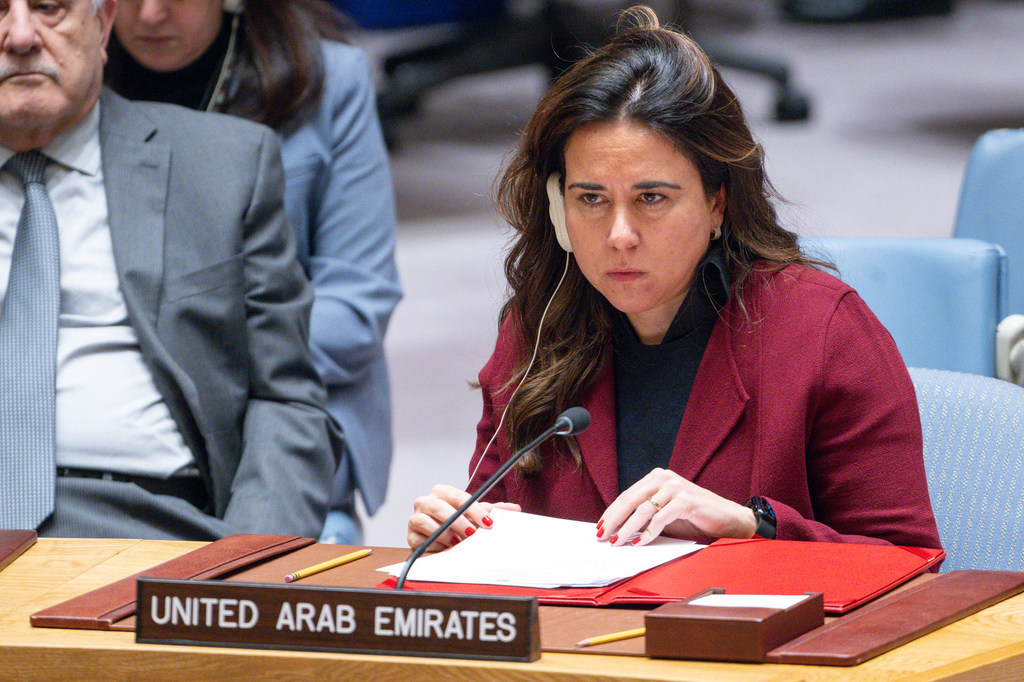
Second, shorter truces would allow for urgent humanitarian aid and services to reach those in need and for hostages to be released.
Finding pathways to similar agreements is essential, including the full implementation of Council resolutions 2712 and 2720, which must be fully implemented.
The third step must see any resolution to this conflict anchored in the two-State solution.
“We will not support a return to the failed status quo,” she said. “Before, the two-State solution was the end point to where we envisioned our diplomatic efforts would lead. Now it must be our starting point.”
There is not only a moral and political duty to limit the expanding crisis in Gaza but also a strategic imperative if there is to be any hope of a prosperous future for the region, she said.
5:40 PM
We'll spare no effort for peace: Saudi Arabia
Saudi Arabia’s Foreign Affairs Minister, Waleed El-Khereiji, said the priority was to alleviate the suffering and bring an end to the crisis in Palestine, and the Council must act to ensure an immediate ceasefire.
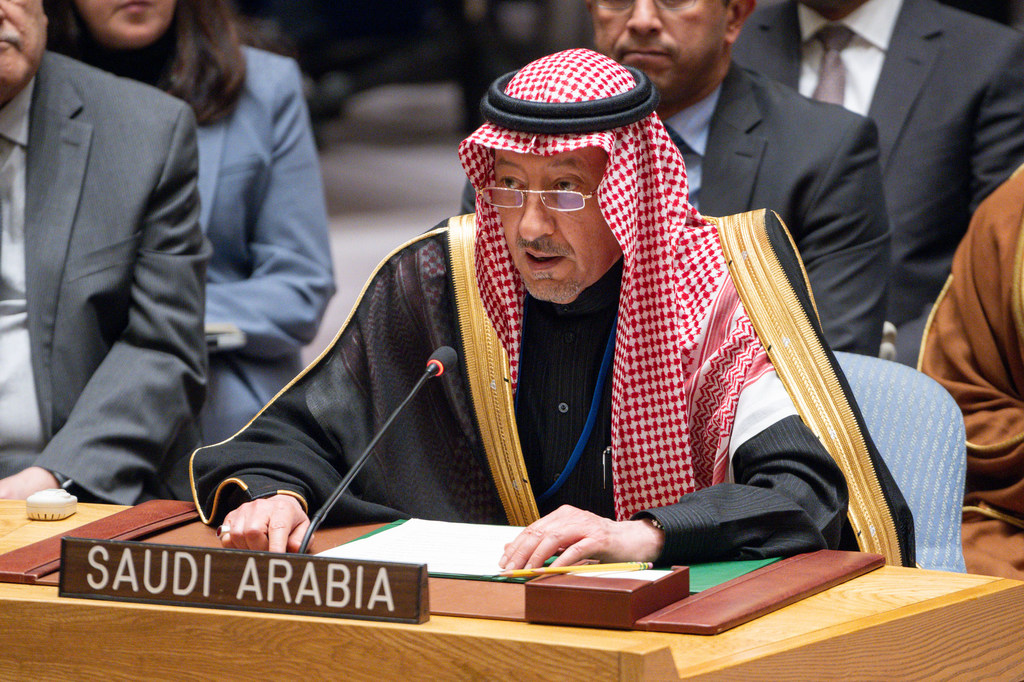
Tensions are increasing in the region because of the “blind Israeli war machine”, he said.
“We have warned against the spillover of this conflict, and now we see military operations in the Red Sea and in Yemen,” he added.
“We will spare no effort to restore peace in the region, and we call upon the Security Council to ensure that Israel stop its violations of the international law.
"We must adopt a common stance with regard to the ceasefire and recognize that Israel’s incendiary attitude undermines efforts to achieve stability in the region, including in Israel.”
5:05 PM
'Lebanon does not want war'
Abdallah Bou Habib, Minister for Foreign Affairs and Emigrants of Lebanon, said the problems facing the region today reaffirm the importance of the UN mission, UNIFIL, and the UN overall, for the protection of Lebanon's sovereignty and territorial integrity.
Turning to the situation in Palestine, he said “we are unfortunately still looking for temporary measures whenever the conflict resurfaces." For decades, the region has known neither peace nor security.
“Have not we learned anything from our past mistakes; is it not high time we acknowledge that we cannot cancel each other out?” he asked, wondering if the solution will be left to the next generation.
A lasting solution is key for peace in the whole Middle East and so is the implementation of the two-State solution, for there is no peace without justice for Palestinians, he added.
“We urge all the stakeholders not to fall into the Israeli trap to expand the war in the region,” he continued. “Lebanon does not want war. We chose peace and stability. Let us give peace a true chance before it is too late.”
"What happened on 7 October did not happen in a vacuum,” he said. “It will happen again if we do not reach a global solution. We have an historic opportunity to advance peace, security and prosperity. Let us seize it since it might not come again.”
4:55 PM
Time for a diplomatic solution: Türkiye
Türkiye’s Foreign Affairs Minister, Hakan Fidan, said it is was a shame the international community has not able to end the conflict in Gaza so far and the recent escalation in the region is more than alarming.
“Israel needs to seek a diplomatic solution and as the international community, we have the historical responsibility to stop this war,” he said, adding that an immediate ceasefire, release of captives and continued humanitarian access, are crucial on the road to a lasting peace.
“Temporary measures will not work.”
As the future of Gaza is up to Palestinians and Palestinians only, the focus should be on the creation of an independent Palestinian State and the establishment of a mechanism that monitors peace progress between Israel and Palestine.
UN Meetings Coverage
For full in-depth summaries of this meeting and others, visit UN Meetings Coverage here, in English and French.
4:45 PM
'Stop this massacre': Jordan
Ayman H. Safadi, Deputy Premier Minister and Minister for Foreign Affairs and Expatriates of Jordan, said “the clock is ticking”, and the Security Council has yet to demand a ceasefire and enforce its own resolution on humanitarian assistance.
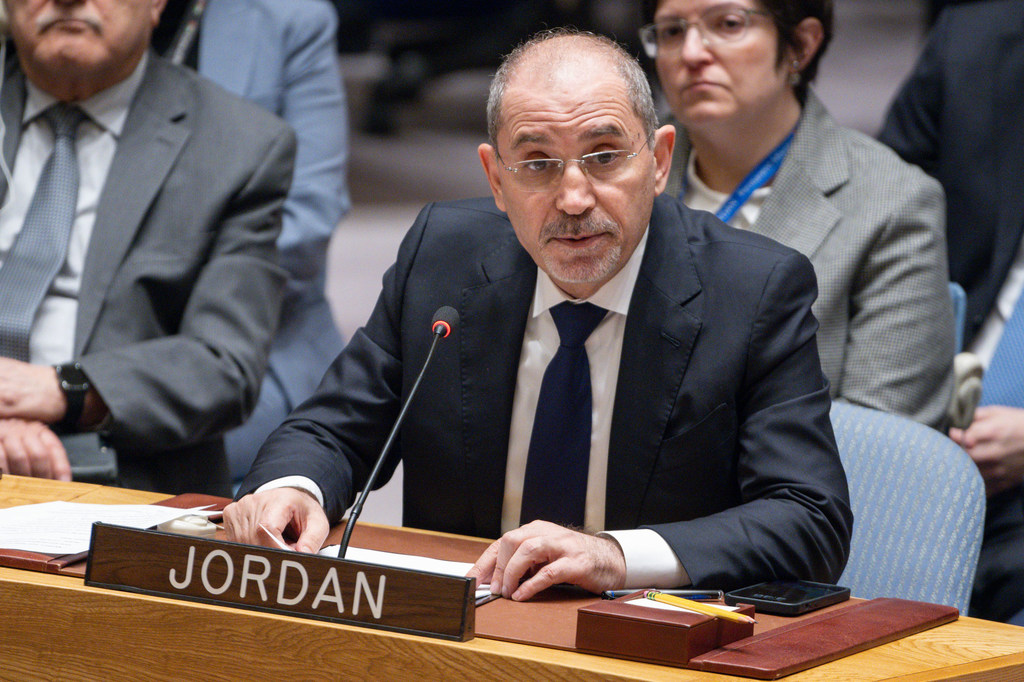
“Stop this massacre,” he said. “Adopting a binding Security Council resolution forcing the end of this misery is the least that you can do now. Partial solutions will not achieve this peace.
"All of you support the two-State solution that the Israeli Government is undermining.”
He said the future of the region cannot be taken hostage by the political ambitions and radical agendas of Israeli extremists.
The whole international community has an urgent choice to make: allow the Israeli Government to doom the region to more conflict or recognize the Palestinian State and finally put the region on an irreversible path to peace.
4:30 PM
Make this the last war of the Israel-Palestine conflict: Ecuador
Ecuador’s Ambassador, José Javier De La Gasca, said that preventing the suffering and death caused by wars is why, more than 78 years ago, the UN was created. This must be the last war of this long conflict, he declared inside the Council Chamber.
“Our aim must be to create the conditions for progress towards a peaceful, negotiated, definite and just solution for the parties, with the existence of two States,” he said.
“Every word or action that undermines the possibility of the two-State solution contributes to perpetuating the conflict and not to improving security. This should be evident to all, after so many years of violence and death.”
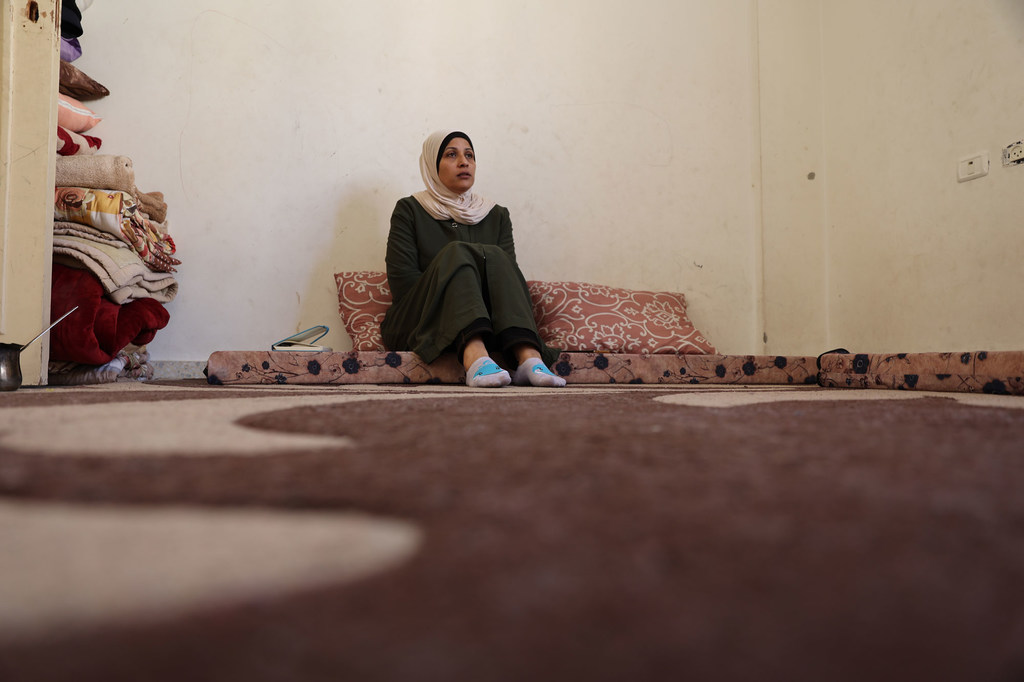
4:25 PM
Grant Palestine full UN membership: China
China’s UN Ambassador Zhang Jun, said that the meeting must send a message of unity and clarity.
Despite international consensus on an immediate ceasefire, the use of vetoes by permanent members during debates over past Gaza resolutions were impeding all efforts.
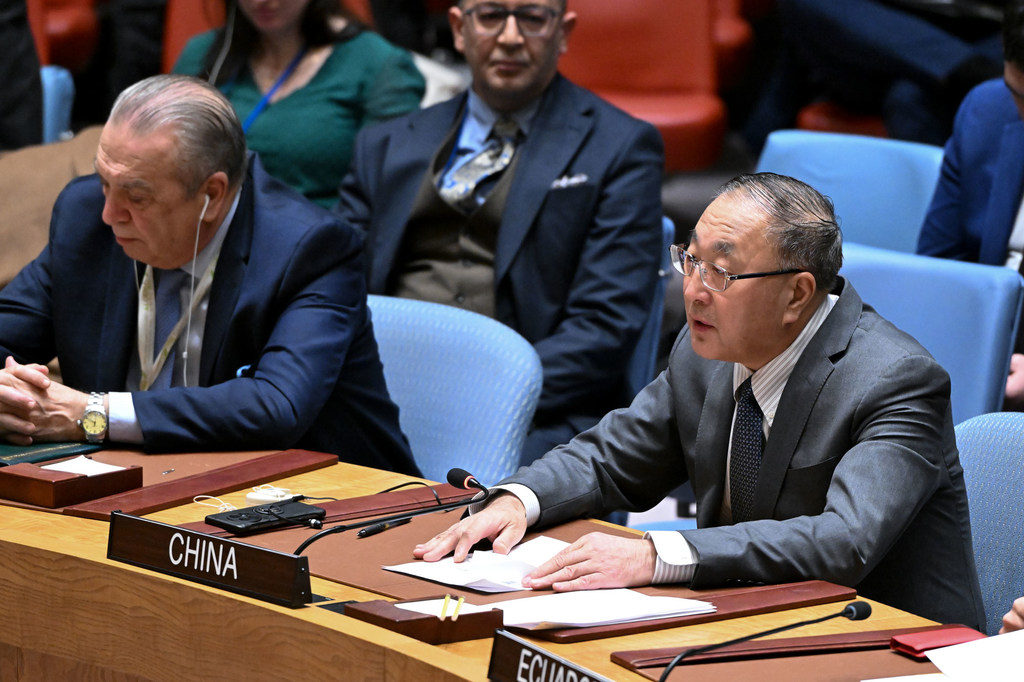
What is lacking is political will and determination, he said, calling on the Council to take the initiative with a sense of urgency to restore peace.
He reiterated that an immediate ceasefire must be considered the priority. All members of the international community should spare no diplomatic effort to promote silencing the guns and prevent further spillover of the conflict across the whole Middle East.
The two-State solution must be revitalized to achieve a peaceful Palestine and Israel, the ambassador noted.
It is unacceptable that Israel’s leadership is rejecting this solution, he added.
In order to increase pressure and make it a reality, Palestine must be granted full membership at the United Nations. He said China will continue to push the Security Council to take due action.
4:19 PM
Two-State solution more important than ever: Japan
Uemura Tsukasa, Special Envoy of the Government of Japan, expressed hope that action will soon be taken to de-escalate.
“We have an undeniable responsibility for many fragile lives and our history,” he said. “We are witnessing the spillover to the West Bank, Lebanon, the Red Sea, Yemen and even more areas, which is seriously concerning.
"We are at a crossroads of whether these conflicts turn into a more large-scale regional confrontation. We must stop it.“
In order to tackle all these serious challenges, a two-State solution has even more importance than ever, he continued. For the people of both Israel and Palestine to lead “a normal life” without any fear for their own safety and survival, that is the key, he said, adding that Japan will continuously work to build confidence between the parties through its own initiatives.
In good times and bad times, Japan is prepared to be a courier for peace, for Palestine, Israel and all the people of the Middle East, he said.
4:12 PM
Caution and prudence essential: Mozambique
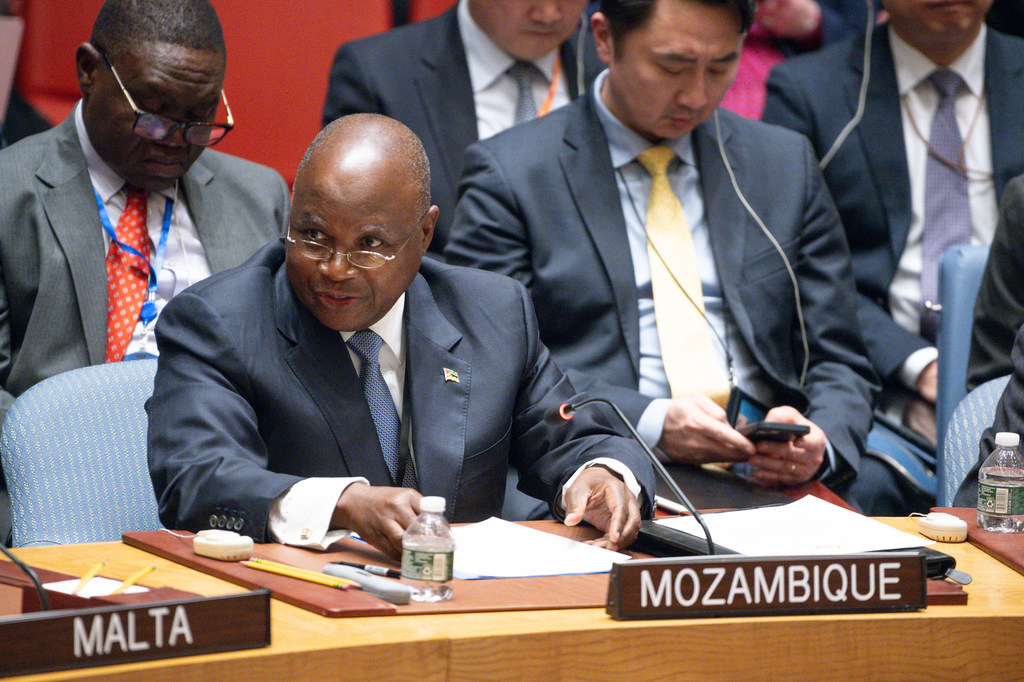
Pedro Comissário, Permanent Representative of Mozambique, said the current situation calls for an immediate and urgent humanitarian ceasefire, a cessation of hostilities and ultimately an end to the conflict.
“In a troubled region like the Middle East, where conflict begets conflict, we need to be cautious and prudent in every move we make, in every step we take,” he said.
“We need to avoid unimaginable political and security consequences that can jeopardize global peace and security.”
As members of the Security Council, “we are duty bound to pull together" and "bring to an end the catastrophe in Gaza,” he continued.
“Our action and influence on the parties to the conflict is of extreme importance. To the extent of our individual capacity, we all need to contribute to peace, security and stability in the Middle East.”
15:52 PM
Two-State solution, only guarantor of peace: US
Uzra Zeya, US Under Secretary of State for Civilian Security, Democracy and Human Rights, said Washington's de-escalation efforts continue, and her delegation supports the UN and its work.
There can be no forced relocation of civilians in Gaza. she told ministers and ambassadors.
The US continues to ask Israeli leaders to do more to protect civilians and adhere to international law, she said, adding that the UN and other humanitarian personnel also require greater protection.
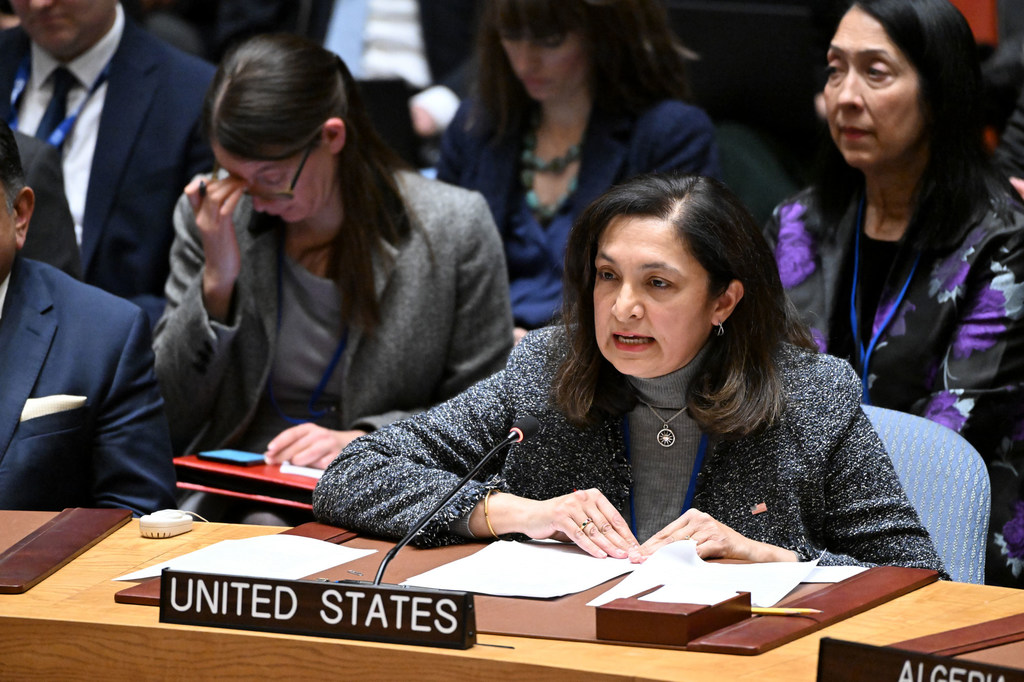
Continued incidents in the past week show that deconfliction remains a serious challenge, she continued, raising concerns about the lack of safety at health facilities and other civilian infrastructure.
“Hamas’s brutal attacks unleashed this conflict,” she said, emphasizing that the hostage crisis must be resolved, and the Council must finally condemn Hamas’s actions and demand the release of all hostages in Gaza.
The US has repeatedly warned Iran not to engage in attacks that could lead to the spread of the conflict and will continue to take action to protect its personnel in the region, she said.
In responding to the crisis and efforts to end it, “the goal is a future where Gaza is never used as a platform for terror”, she said, adding that two States, with Israel’s security guaranteed, is the only guarantor to end this violence “once and for all”.
15:46 PM
'Unacceptable' suffering in Gaza: UK minister
Lord Tariq Ahmad, Minister of State in the UK's Foreign, Commonwealth and Development Office, said that the humanitarian crisis in Gaza was worsening daily with hundreds of thousands there facing the risk of famine.
“Their suffering, frankly put, is unacceptable and our priority must be to alleviate it,” he said.
Recalling Security Council resolution 2720, he also urged Israel to “significantly increase” the flow of aid into Gaza, including through the opening of Ashdod Port and an immediate increase in access through the Kerem Shalom crossing on the Israel-Gaza frontier.
Lord Ahmad further called on all Council members to collectively work towards a sustainable ceasefire.
3:35 PM
No forcible displacement of Palestinians: Sierra Leone
David Moinina Sengeh, Chief Minister of Sierra Leone, expressed deep concern that Israel's military operation has been followed by rhetoric calling for forcible displacement of Palestinians by some Israeli politicians.
“We condemn the rhetoric and reject any attempt to remove Palestinians from the Gaza strip or the West Bank either temporarily or permanently,” he said, calling for accountability for all those responsible for violations of international law, in particular international humanitarian law.
Noting with concern the rising tensions in the West Bank, across the Blue Line in Lebanon, the Red Sea and other parts of the region, he emphasized the need to continue exploring all diplomatic and political avenues toward finding a just and lasting solution, based on the two-States principle.
3:20 PM
Give Palestinians democratic right to self determination: Russia
Russia’s Foreign Affairs Minister, Sergey Lavrov, said the Council has yet to provide an adequate response to end the conflict and take steps to prevent further destabilization of the Middle East because of the position of the United States, which vetoes ceasefire resolutions, giving a carte blanche to continue the collective punishment of Palestinians.
Raising concerns about the massive displacement of Palestinians, the environmental impact on Gaza of Israel’s bombardment and the serious lack of humanitarian access amid high risks of epidemics, he said Russia has sent hundreds of tonnes of aid to the Strip and supports efforts of UN agencies on the ground.
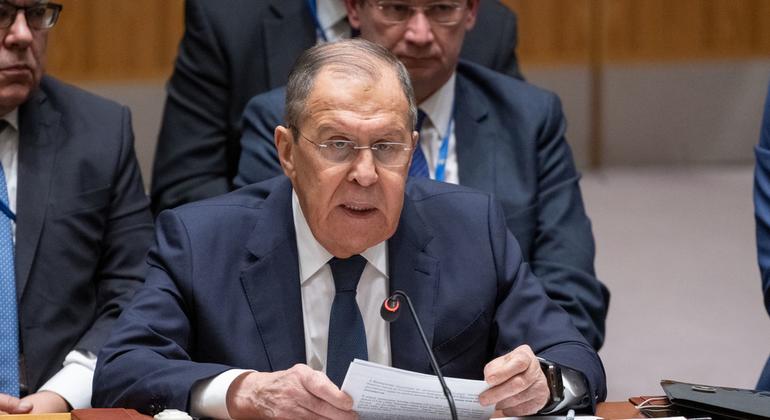
The Council’s inability to act has meant the conflict is spreading in the region, representing new risks to international security, including the US and UK’s attacks on Yemen and Israel’s strikes on Syria.
At the same time, calls from Western delegations focus on “the day after” instead of a ceasefire. In this vein, the Council must continue to call for a ceasefire. Until this happens, discussions about “the day after” are pointless.
Palestinians should decide their future for themselves, he said, adding that “I think that’s what our Western colleagues call democracy.”
Every time the US takes unilateral action in the Middle East, with its separate “shuttle” negotiations, it ends in “ever bloodier escalation”, he said.
He said Russia would support an international conference which could come up with solutions, including measures to ensure security for Israel, and a system for collective security in the Persian Gulf and in the Middle East as a whole.
3:05 PM
Bring Israel to justice: Algeria
Algeria’s Minister of Foreign Affairs, Ahmed Attaf, said his delegation’s goal is “to put an end to the outpouring of blood in Gaza”.
As such, humanity must confront three challenges. First, resolutions, laws and legislation must be respected. The second challenge is to ensure that no Member State thinks it has a right to special treatment and immunity.
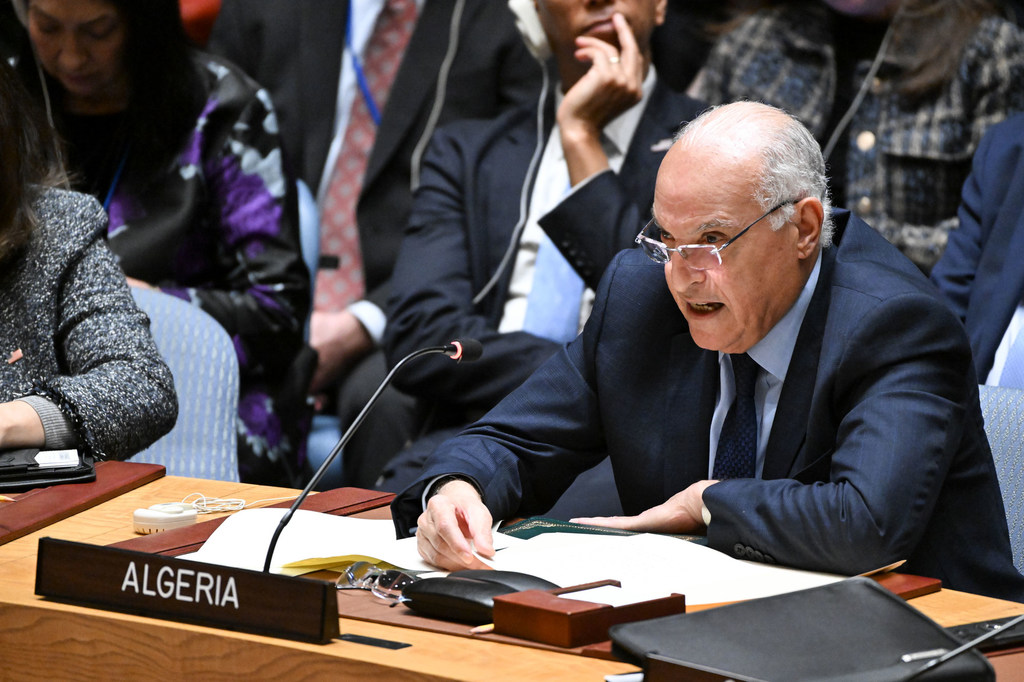
The third challenge is to compel Israel to uphold international law and put an end to the present crisis in Gaza.
“We need to bring together international judicial bodies to bring Israel to justice,” he said, welcoming South Africa’s case at the International Court of Justice (ICJ) and initiatives from countries like Chile, which has petitioned the International Criminal Court (ICC). “We call on those bodies to implement their mandate.”
Meanwhile, all Security Council members should also shoulder their responsibilities, for there can be no doubt that the immediate priority is to ensure a ceasefire and to act swiftly to achieve the two-State solution.
“To maintain the very foundation of the two-State solution, we call for Palestine to become a full-fledged UN Member State,” he said.
2:45 PM
Three principles: France
Stéphane Séjourné, Minister for Europe and Foreign Affairs of France, which holds the Council presidency for January, spoke in his national capacity, saying that three principles will guide his delegation’s action within this Council in the days and weeks to come.
First, the principle of humanity: “All hostages must be released immediately and unconditionally, and we must act in favour of the civilian population of Gaza and work for a ceasefire,” he said, adding that the second principle is that of plain justice.
“We need to relaunch the peace process in a decisive and credible manner. We know the parameters of the solution: two States living side by side in peace and security, within secure and recognized borders based on the 1967 lines, and both having Jerusalem as their capital.”
The third principle will be the principle of responsibility in the face of risks of escalation, he said, emphasizing that “we must do everything to avoid a conflagration in the region and an extension of the conflict.”
2:34 PM
'We will defend our future': Israel
Israeli Ambassador Gilad Erdan, recalling that Israel withdrew from Gaza 18 years ago, said that since Hamas was voted in, it has turned the enclave into a “war machine”.
Some are advocating for a permanent ceasefire, which would see Hamas remaining in power. That would put Israel at existential risk because Hamas seeks to annihilate Israel, he added.
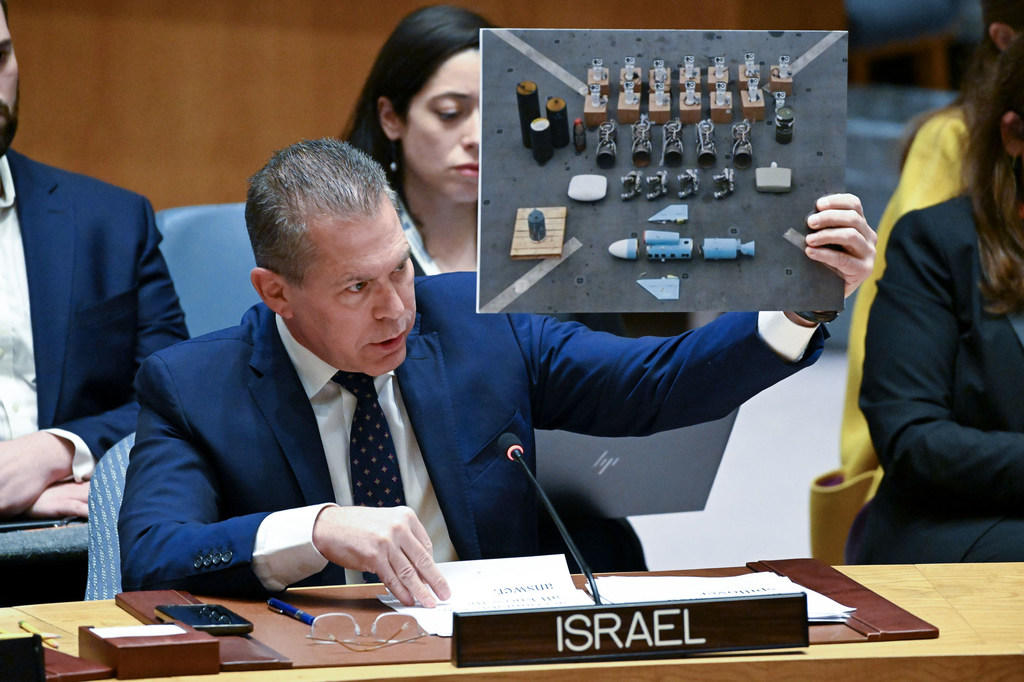
However, should Hamas turn in those responsible for the 7 October attack on Israel and return the hostages, the war would end right away, he said, adding that “we will defend our future.”
The conflict’s spillover was planned, he continued, holding up a photo of seized arms while emphasizing that without Iran, the Houthis would not have weapons to target vessels in the Red Sea.
Indeed, every country in the region has been affected by Iran, which will stop at nothing to spread its hegemony, he added, noting also that Albania was hit by an Iranian cyberattack.
If the Council continues to provide aid to Gaza without considering the Iranian threat, it will be a very dark future, he concluded.
2:25 PM
'Time for accountability': Palestine
Riyad Al Maliki, Minister of Foreign Affairs for the Observer State of Palestine, said the ongoing war is a “premeditated effort to inflict maximum pain on the Palestinian population” by combining three factors.
First, the most savage and indiscriminate bombing campaign in the post-Second World War era, massive destruction and a cruel siege depriving the population of the essentials for its survival – leading to the spread of famine, dehydration, disease, destitution and despair – and the forcible displacement at a scale and speed not witnessed in modern history, with virtually the entire Palestinian population in the Gaza Strip.
“No home, hospital, school, mosque, church or UNRWA shelter is safe from Israel’s bombardments, 2,000-pound bombs dropped with no care whatsoever for civilian lives, more than 25,000 of whom have been killed, including over 11,000 children, more than 63,000 injured, thousands permanently maimed and disabled and more than 7,000 buried under the rubble,” he said.
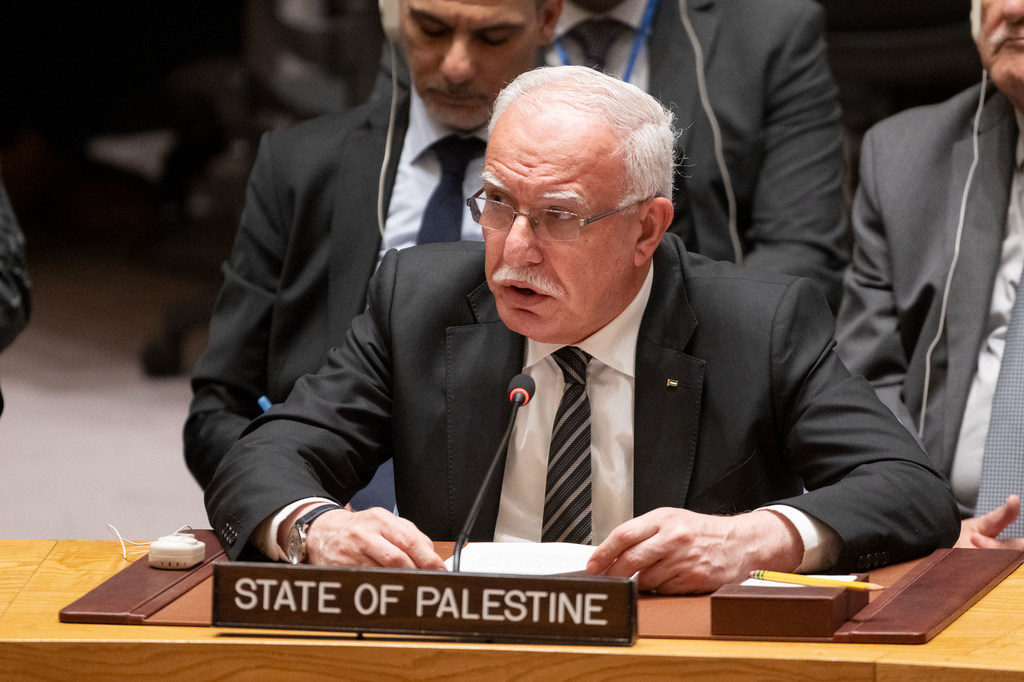
The world is calling for a ceasefire, he said. It is time for accountability and for convening an international peace conference with a clear objective: upholding international law and implementing UN resolutions through resolute action by all States, organizations and the UN, he said.
Time for Palestinian recognition
It is also time for recognition and admission of the State of Palestine to the UN, he said.
“We were not granted a veto right over Israel’s admission to the United Nations 75 years ago; Israel does not have a veto right over the admission of the State of Palestine 75 years later,” he said, adding that the international consensus on two States in this land must be upheld in word and deed.
“We are running out of time,” he said, adding that there can be no more pretexts for endless delays and obstruction. “There are two choices: a spreading fire or a ceasefire. The alternative to freedom, justice and peace is what is happening now.
"We must make sure it stops, now and we must make sure it never happens again. Never again.”
2:20 PM
Two-State solution, ‘the only way’
The UN Secretary-General also voiced concern over the violence beyond Gaza. He noted rising casualties in the occupied West Bank, including East Jerusalem, as well as the exchange of fire across the so-called Blue Line, which separates Israeli and Lebanese armed forces, alongside the escalating situation in the Red Sea and strikes in Iran and Syria.
In his remarks, Mr. Guterres underscored the vital importance of the two-State solution.
The “clear and repeated” rejection of the two-State solution at the highest levels of the Israeli Government “is unacceptable”, he said, noting that this was despite the “strongest appeals”, even from Israel’s friends and allies.
“This refusal and the denial of the right to statehood to the Palestinian people would indefinitely prolong a conflict that has become a major threat to global peace and security.”
He said that Palestinian people’s right to build their own fully independent state must be “recognized by all” and that any refusal to accept the two-State solution by any party must be “firmly rejected”.
“The two-State solution is the only way to address the legitimate aspirations of both Israelis and Palestinians.”
He concluded urging unity among the international community to advance a meaningful peace process.
“Over recent decades, the two-State solution has been criticized, denigrated and left for dead time and again. Nonetheless, it remains the only way to achieve lading and equitable peace in Israel, in Palestine, and across the entire the region,” he said.
2:15 PM
“Let’s face it. Despite all the efforts I described, no effective humanitarian aid operation can function under the conditions that have been forced on Palestinians in Gaza and those doing everything possible to help them", said the UN chief.
He reiterated the need for safety on the ground alongside telecommunications equipment for convoys, armoured vehicles, spare parts for vital infrastructure, more crossing points, easing verification and the end to denials of aid shipments.
“I renew my appeal for an immediate humanitarian ceasefire. This will ensure sufficient aid gets to where it is needed, facilitate the release of hostages, and help lower tensions around the Middle East,” he stressed.
2:10 PM
‘Appalling humanitarian situation’
Stating that the entire population of Gaza is enduring destruction at a scale and speed without parallel in recent history, Mr. Guterres stressed that nothing can justify the collective punishment of the Palestinian people.
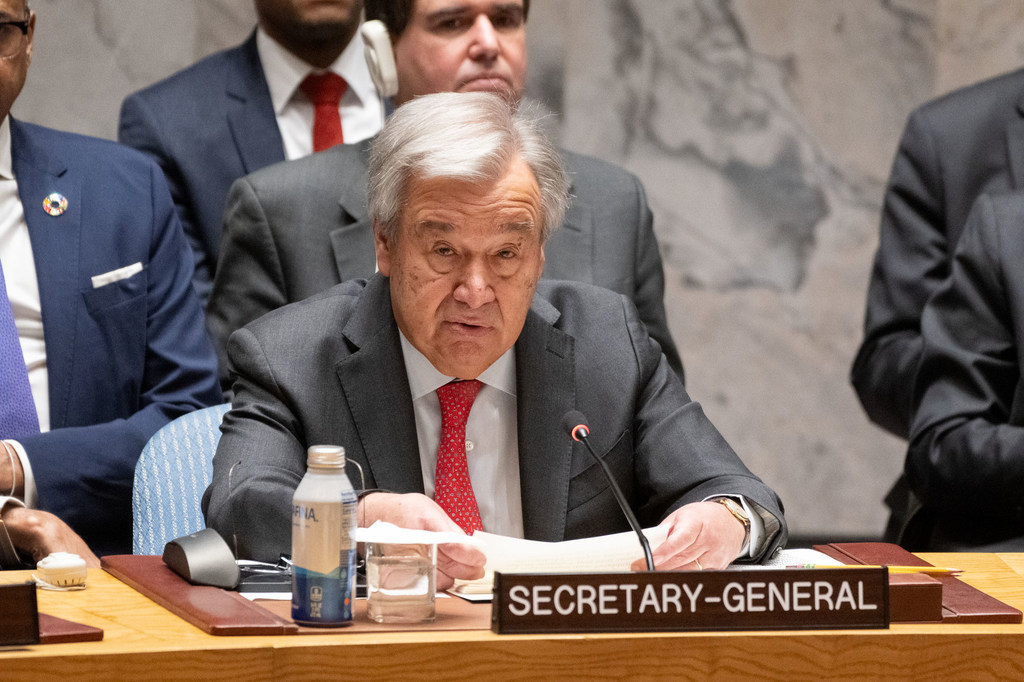
With disease and hunger raging and needs skyrocketing, in the midst of winter, UN humanitarians and partners are striving to deliver despite overwhelming challenges, he said.
2:06 PM
Guterres demands hostage release
UN Secretary-General António Guterres once again demanded the immediate and unconditional release of all hostages being held by Palestinian militants in Gaza.
He said nothing can ever justify the deliberate killing, injuring, or kidnapping of any civilians, “the use of sexual violence against them or the indiscriminate launching of rockets” towards them.
He noted Israel was proposing a two month pause in hostilities in exchange for a “phased release” of the remaining hostages in the Strip.
“I will continue, in my limited capacity, to pursue all efforts to contribute to their release," he said.
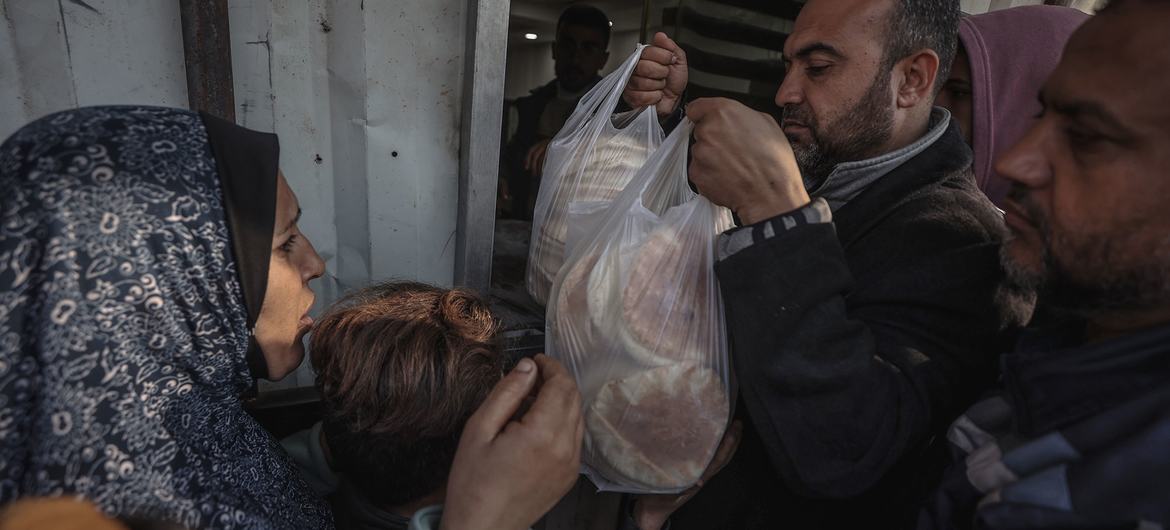
2:05 PM
The meeting is underway, with French foreign minister Stéphane Séjourné in the chair, as his nation holds the presidency for January. The UN chief is sitting to his right. He extended a warm welcome to the Secretary-General saying his presence underlined the gravity of the crisis before the world.
2:00 PM
The Council Chamber is packed as visiting diplomats and delegates from the New York missions mingle ahead of the start of the meeting, which looks some minutes off.
1:30 PM
Secretary-General António Guterres is due to brief the meeting, with senior foreign ministers and ambassadors from the 15 Council members – together with many other nations – due to have their say on the widening war.
Russian Foreign Minister Sergey Lavrov, France’s Stéphane Séjourné, Türkiye’s Hakan Fidan and the UK’s Tariq Ahmad are among those who have made the trip to New York to take part in the high level open debate.
Mr. Séjourné is expected to chair the meeting, as France holds the rotating Security Council Presidency for January.
The meeting on peace and security in the Middle East takes place amid a widening of the conflict beyond Gaza, with regular exchanges of fire between Israeli and Hezbollah forces in Lebanon and increasing air strikes led by the US and UK on Houthi rebels in Yemen, who have been attacking shipping in the Red Sea as an act of solidarity with Palestinian militants.
With the humanitarian crisis in Gaza showing no signs of abating and initiatives to see hostages released in exchange for a humanitarian pause struggling to gain traction, calls for an end to the carnage in the enclave are growing louder.
Some 70 names are inscribed on the speaking list and the meeting is likely to continue late into the evening.
We will have the coverage of the deliberations live on this page, and on X, formerly Twitter, at @UN_News_Centre
Click here or here for our coverage of the last two meetings of the Security Council on the crisis and visit the UN Meetings Coverage here (or here in French) for detailed run down of the Council’s deliberations.

